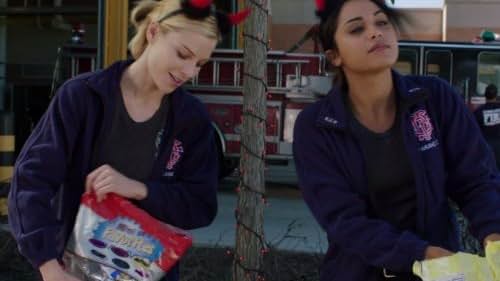
Amidst the Flames: Why Firefighter TV Shows Ignite Our Screens
The wail of a siren, the crackle of a raging inferno, the sight of figures silhouetted against a backdrop of smoke and flame – these are the visceral images that draw us to firefighter television shows. More than mere spectacles of daring rescues and heroic feats, the best of these series delve deep into the human heart beating beneath the turnout gear. They explore themes of camaraderie, sacrifice, trauma, and the unwavering spirit of those who run towards danger when others flee. From the established titan Chicago Fire to the bold new vision of 9-1-1: Lone Star and the redemption arc of Fire Country, these shows don't just put out fires; they ignite our imaginations and remind us of the extraordinary within the everyday.
At the core of any compelling firefighter drama is the concept of the “found family.” These aren't just colleagues; they are brothers and sisters forged in the crucible of life-or-death situations. No show exemplifies this better than Chicago Fire. As the flagship of Dick Wolf’s expansive "One Chicago" universe, Chicago Fire has perfected the art of blending high-stakes emergencies with intricate personal narratives over its more than a decade on air. Firehouse 51 isn't just a workplace; it's a home where diverse personalities – the stoic yet passionate Kelly Severide, the compassionate Matthew Casey, the unwavering Stella Kidd, and the rock-solid Christopher Herrmann – navigate triumphs and tragedies together. The show meticulously builds the emotional architecture of these relationships, making every loss felt, every victory celebrated, and every personal struggle a communal burden. Its enduring appeal lies in its reliable procedural format, punctuated by deeply affecting character moments that make viewers feel like a part of the Firehouse 51 family themselves.
Venturing from the familiar streets of Chicago to the vibrant, often eccentric, landscape of Austin, Texas, 9-1-1: Lone Star offers a fresh, amplified take on the genre. Helmed by the prolific Ryan Murphy, this spin-off brings a unique blend of heightened reality, unapologetic drama, and a refreshingly diverse cast. Led by the charismatic Owen Strand (Rob Lowe), a New York captain who rebuilds a firehouse from the ground up after a 9/11-related tragedy, the show is less about gritty realism and more about exploring the human condition through a kaleidoscope of extraordinary emergencies. From meteors striking a gas plant to supervolcano eruptions and bizarre animal attacks, Lone Star embraces the spectacular. Yet, beneath the sensationalism, it grounds itself in compelling character arcs: Owen’s battle with cancer, his son T.K.’s journey through addiction and love, and the struggles of a varied ensemble representing the LGBTQ+ community, people of color, and those with disabilities. It’s a show that dares to be bold, proving that heroism comes in many forms and that even the most fantastical scenarios can carry profound emotional weight.
A newer, yet equally impactful, addition to the pantheon is Fire Country. This series carves its own niche by moving away from urban infernos to the expansive, dangerous world of wildland firefighting, with a unique narrative twist. Bode Donovan (Max Thieriot) is a young convict seeking redemption by joining a fire camp program, only to find himself assigned to his own Northern California hometown – a place he fled years ago under a cloud of shame. Fire Country excels by interweaving the immediate, life-threatening dangers of wildfires with a deeply personal, serialized drama about second chances, familial bonds, and the long shadow of past mistakes. It explores the complex moral gray areas of rehabilitation and the poignant truth that sometimes, the greatest fires one must fight are within oneself. The show’s rustic setting and the stark reality of battling nature's fury provide a distinct backdrop, giving viewers a different perspective on the sacrifices firefighters make, both on and off the job.
And the landscape of compelling firefighter dramas extends beyond these, showcasing the genre’s versatility. From the gritty, dark humor and PTSD exploration of Rescue Me to the groundbreaking, procedural realism of Emergency! from decades past, each show contributes to a rich tapestry. They all share a common thread: the unwavering focus on the men and women who embody courage, quick thinking, and selflessness. They show us that heroes are not mythical figures, but everyday people who answer the call, often with personal costs that stretch far beyond the immediate danger.
In conclusion, the best firefighter TV shows are more than just pulse-pounding action sequences. Chicago Fire draws us in with its familial warmth and reliable procedural beats. 9-1-1: Lone Star captivates with its audacious emergencies and vibrant characters. Fire Country grounds us with a powerful narrative of redemption amidst nature's fury. Together, and alongside other notable entries, they illustrate the enduring appeal of this genre, reminding us that amidst the smoke and ash, the most potent force is the indomitable spirit of humanity, ever ready to answer the call, to save, and to rebuild. They are a testament to the fact that while fires may be contained, the stories of those who fight them burn brightly in our collective imagination.
